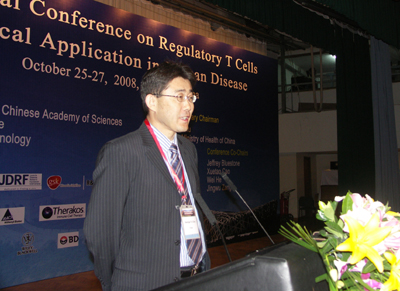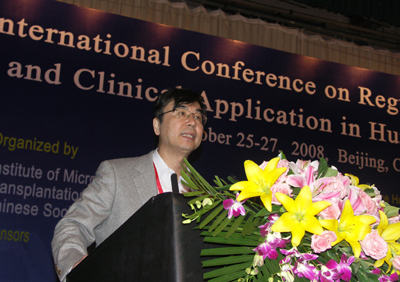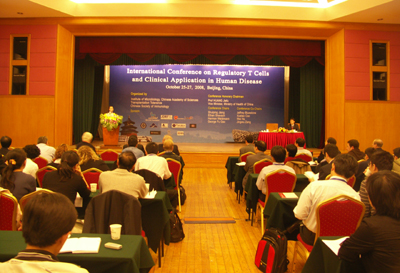


The International Conference on Regulatory T Cells and Clinical Application in Human Diseases was held by the Institute of Microbiology, Chinese Academy of Sciences, the Chinese Society of Immunology and the Transplantation Tolerance, a British non-profit organization on 25-27 October, 2008 at Beijing Friendship Hotel.
In the past decade, scientific research on immune regulation has exploded thanks to the re-emergence of T suppressor cells (Ts), now coined “regulatory T cells” (Tregs). It is now clear that there are many different populations of Tregs, and that they play major roles in the control of immune responses. As the induction and effector mechanisms used by regulatory T cells are being unraveled, new opportunities are emerging for immune intervention in cancer, autoimmune disease, allergy, and in the induction of clinical transplantation tolerance. The aims of the conference was to update the latest development of regulatory T cells and their clinical application in human diseases including diabetes, GVHD, allergy, cancer, transplantation tolerance; to introduce Chinese medical community one of the most cutting-edge topics in medicine; and to foster the development of scientific exchange and cooperation between China and western countries.
During the conference, more than 30 prominent international speakers presented state-of-the-art topics on diverse aspects of the development, function, mechanism of action, and homeostasis of regulatory T cells, and their translation to the clinic. The conference assembled more than 400 scientists from 16 countries and discussed the most up-to-date information on the research and preclinical and clinical trials of regulatory T cells. The Conference was recognized as one of the most exciting and important meetings in immunology in recent years.